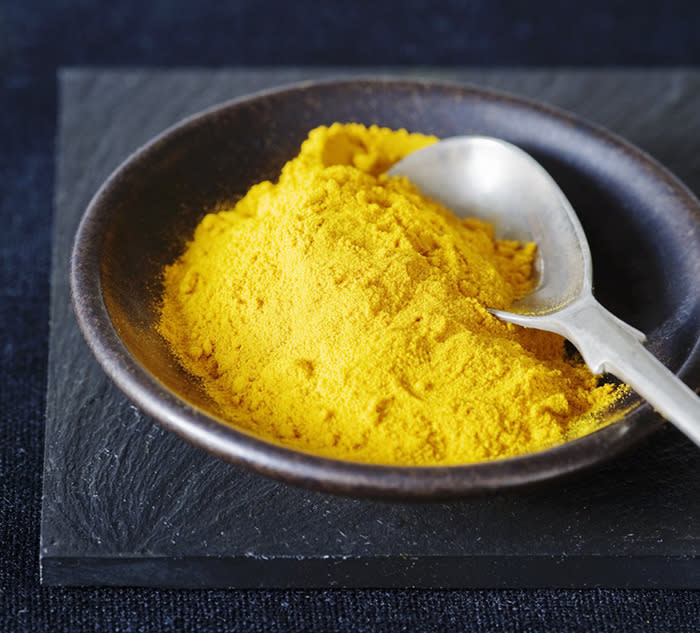Ancient Spice May Be Next Big Thing in Food Safety

(Photo: Corbis Images)
Turmeric, a spice best known for its use in Indian cuisine, may someday help prevent E. coli outbreaks, but in a highly unusual way. Researchers at Southern Illinois University have made progress on incorporating turmeric into food processing and preparation surfaces—think cutting boards, knives, and countertops—according to a university news release.
Related: The Dangerous, Uncomfortable Effect of Too Much Nutmeg
Curcumin, a primary component of turmeric, has antioxidant, anti-inflammatory, and antimicrobial properties. Using nanotechnology, the researchers developed a way to bind curcumin to metal and glass; essentially they used tiny bubbles (nanovesicles) to enclose a curcumin compound. The coated surfaces kill microbes—including E. coli—and prevent food from spoiling without imparting turmeric flavor into the food.
Related: What the Dust in Your House Says About You
As Grist notes, this application could go well beyond food prep. Theoretically, the insides of cans could be coated with the material to make sure food stays fresh and safe. Other types of food packaging could take advantage as well.
“We know now fresher foods are also higher in antioxidants and nutritive value,” says researcher Ruplal Choudhary. “My goal is to find practical ways to use this technology to preserve food freshness as well as to create antimicrobial surfaces.”
Related: Healthy Foods Aren’t Necessarily Healthy for Everyone
It raises an intriguing possibility, writes Nathanael Johnson at Grist: "What if our next-generation, futuristic antimicrobial turns out to be the same thing people have been using for the 4,000 years?” (Other E. coli research has some advice for spinach eaters.)
By Luke Roney
More From Newser:
Here’s How Often Happy Couples Have Sex
Woman Tries Coat-Hanger Abortion, Is Arrested
This article originally appeared on Newser: Ancient Spice May Be Next Big Thing in Food Safety

